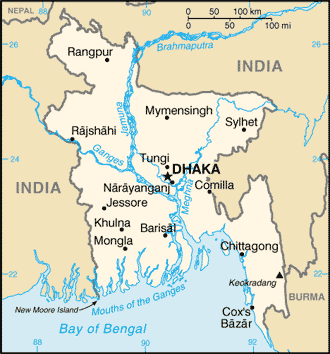
Sultan:
From Dhaka, Bangladesh to Phoenix, AZ.
I interviewed Sultan from Bangladesh. Sultan and I have worked together for the past five years and never spent any time discussing who we are or where we are from. It is obvious when talking with Sultan that he has an accent. Where it is from, was always difficult for me to tell. His complexion is a dark olive brown, if that makes any sense. He has a thin build, and dark thick black hair. We work together in a steel factory where Sultan works as a machinist and an operations technical advisor. His work requires him to be highly educated and intimately familiar with our company’s protocol and culture. Both of which he commands.
I
chose Sultan because my initial assumption five years ago was that he
was a descendent of a foreign national, but somehow American, given his
experience and knowledge. I approached him with a simple
question, “Sultan, where the heck are you from?” His reply was
perplexing, “Canada”, he said, and then the story got so complicated,
he decided to start from the beginning. I would then learn that
he was here in the U.S., not by accident, but endurance, planning, and
a strong determination.
Sultan is 36 years old and well on his way to achieving something he set out to do many years ago. At the age of 15, Sultan left his hometown of Dhaka, Bangladesh in hopes of someday becoming an American. His life growing up was tough, poor living conditions in a polluted city. His father had taken ill when he was young and he set off to find work in America, where he thought he would be paid well for his efforts. His journey took him to Singapore initially, where he learned English and studied at a vocational electrical engineering school. But most importantly, he worked and sent money home to his mother and siblings.
In 1987 Sultan began working with the Canadian consulate in Singapore to get a student visa that would get him into Canada to continue his studies. However, this was more calculated. Sultan knew that it would take a long time to get into the US, so he would come by virtue of Canada. In 1990, he was accepted into an engineering school in Toronto and received his student visa. In Canada, he earned $5 / hour working in a photo lab, along side Canadian citizens who earned a minimum wage of $15 / hour. As a foreign worker, Sultan was not eligible for social benefits, and to boot, paid $6,000/year for his education.
In 1992 he returned home for the first time since leaving to visit his parents and marry his long-time love. He was able to obtain his permanent Canadian residency (not citizenship) in 1994. This allowed him to begin working as a certified engineer technician at the prevailing rate of $18 / hour. He and his wife had two children and started a technical contracting business in Toronto in 1996. While he and his new family experienced upward mobility, he held his dream of one-day becoming an American. His business grew and he began to establish working relationships in the U.S. This led to him contracting work to a U.S. manufacturer.
To
be closer to his U.S. counterparts, Sultan expanded his business to
include a satellite office in Warren, OH. This was made possible
by new trade laws in 1998. He landed some contract work for
Dietrich Industries, Inc. (our present company), where he was offered
help to become a U.S. citizen. Dietrich Industries helped Sultan
obtain his TN Visa (contract work only), which allowed him to work and
live in the U.S. for one year. He had this renewed before getting
his permanent status and moving to Arizona in 1999.
Since he left, Sultan has had his parents on dependent status. He has been sending money home for clothes food and medicine. He wires approximately $300 home each month. Sultan is the only foreign source of income to his family and they rely heavily on him for support. He returns home for two weeks every couple of years. Today, Sultan enjoys his time with his Canadian sons and American born daughter. He is very proud, having so nearly accomplished what he had set out to do, become an American.